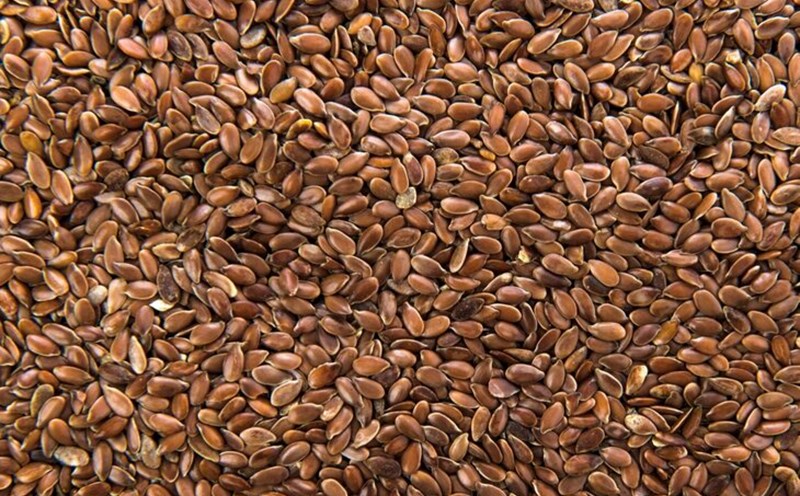Flaxseeds, small nuts but rich in nutritional value, are increasingly popular in healthy diets. According to nutritionist Brittany Lubeck, MS, RDN, flaxseeds can bring many benefits to the body if you use them regularly, in the right dosage and in accordance with your health condition.
Good for digestion
Flaxseeds contain a mixture of soluble and insoluble fiber (25%) (75%), which helps nourish beneficial gut bacteria and increase stool volume. Lan seeds help improve diarrhea frequency, reduce bloating, and support gut microbiota, Lubeck says.
One study showed that people who ate 50g of flaxseeds per day for a month had a significant improvement in bowel movements. In another study, flaxseed powder was even more effective than lactulose, a popular laxative in improving constipation.
Cardiovascular support
Flaxseeds contain omega-3 fatty acids, lignans and fiber, all of which have a positive effect on heart health.
According to nutritionist Allison Herries, RDN, flaxseed can help lower blood pressure slightly, reduce inflammation, fight atherosclerosis and regulate heart rate. "Although the effect is not large, for people with high blood pressure, even a slight reduction in blood pressure is beneficial," she said.
Support the treatment of hormone-related cancer
Lignans in flaxseeds can affect the activity of estrogen receptors, a factor associated with certain types of cancer such as breast or prostate cancer.
In animal studies, when flaxseeds are combined with tamoxifen, breast cancer tumors reduce in size. However, experts recommend that people being treated for cancer should only eat flaxseeds in moderation in natural foods, avoiding taking supplements.
Support for reducing menopausal symptoms
Some studies have shown that flaxseeds may reduce the frequency and severity of fire attacks, a common symptom of menopause. However, this effect is not strong and there is no clear conclusion. We need more evidence before considering flaxseeds as a treatment for menopausal symptoms, Herries said.
Control diabetes
Flaxseeds can help lower fasting blood sugar, reduce HbA1c (long-term glycemic index) and improve blood sugar control in people with prediabetes.
One study showed that consuming 40g of flaxseed powder per day for 12 weeks significantly reduces blood sugar levels.
Nutrition and how to use it
A tablespoon of whole flaxseeds contains about 55 calories, 2.8g of fiber, 4.4g of healthy fats and minerals such as calcium, magnesium, potassium. You can use flaxseeds in whole grains, puree or squeeze in oil, add them to smoothies, yogurt, salads, baked goods, and even replace them with eggs in vegetarian recipes.
However, experts recommend drinking enough water when eating flaxseeds because the high fiber content can cause discomfort if not digested properly.
Who should be cautious?
Although considered safe for most people, pregnant women, breastfeeding women, people with flaxseed allergies or taking special medication should consult a doctor before taking it regularly. Flaxseeds can affect hormones and interact with some medications.











